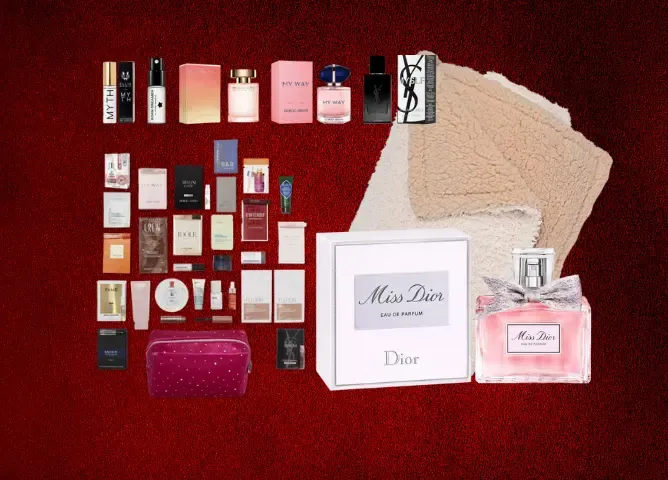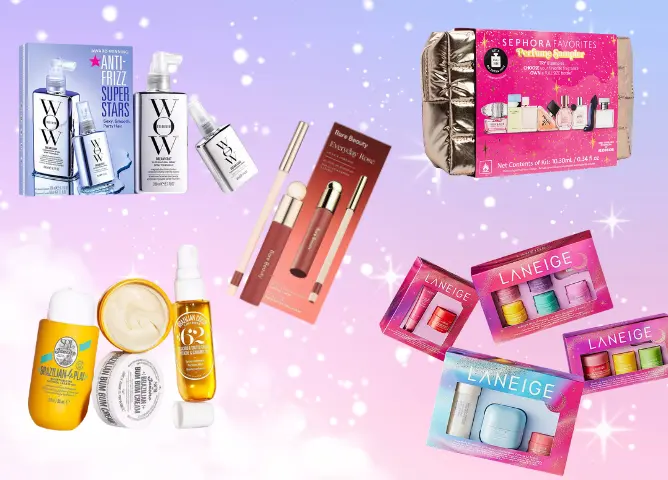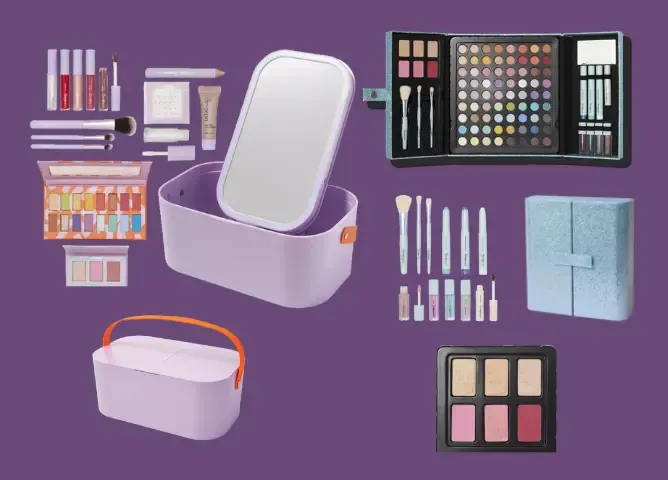In This Article
This post may contain affiliate links, please see our privacy policy for details.
Do you want to know the difference between retinol and retinoid?
Most people don't know there is a difference. But there is! And it's an important one to understand if you're serious about anti-aging skincare.
We'll break down the differences for you, as well as explain why you should be using both ingredients in your skincare routine. By the end of this post, you'll be an expert on Vitamin A and how to use it for optimal results.
Read our blog post now and learn everything you need to know about retinol and retinoid!
What is Retinol?
Retinol, also known as vitamin A alcohol, is a naturally occurring form of vitamin A found in many foods such as eggs, sweet potatoes, and carrots. This powerful ingredient helps to maintain healthy cell production, promotes an even skin tone, and can help reduce fine lines and wrinkles. When used topically on the skin, retinol works to exfoliate the outermost layers of the skin while stimulating collagen production deep within. It should be noted though that this ingredient can cause some peeling or flaking at first so it’s important to start off with a low concentration if you’re new to retinol use.
What is Retinoid?
In contrast to retinol, retinoids are derived from synthetic forms of vitamin A which can be identified by their “-acid” suffixes (e.g., tretinoin). These compounds possess higher potency than its counterpart due to their ability to penetrate deeper into the skin for enhanced effectivity against acne breakouts and hyperpigmentation. Generally speaking though, the use of both ingredients together yields the most visible results; however, users should do so cautiously as combining these two active ingredients may lead to irritation or redness.
How Do Retinol and Retinoid Work?
When applied topically onto the skin, retinol acts like those popular exfoliating acids you see around (e.g., Glycolic or Salicylic) but without any of their harshness or side effects. Instead of stripping away all of your skin cells at once (like exfoliating acids), retinol helps remove dead cells slowly over time — allowing new younger ones to take their place instead! Additionally thanks to its regenerative properties it can also help reduce wrinkles, fine lines, and dark spots caused by aging or prolonged UV exposure.
On the other hand, retinoid works by enhancing the shedding of skin cells, helping them to turn over quickly and efficiently while promoting cell differentiation and regeneration. Retinoid helps to restore collagen production, visibly reducing wrinkles and fine lines as well as improving dark spots and uneven skin tone. This ingredient is also a powerful anti-inflammatory that helps reduce redness, and treat acne breakouts, and blemishes. For optimal results, retinoids should be used in combination with sunscreen for protection against the sun's harmful rays that are known to accelerate aging.
Which One Should I Use?
When evaluating whether you should use either product — always consider your skin type first; those prone to dryness or sensitivity should rather go with plain retinol due to its gentler properties while combination therapy may be more suitable for those aiming for visible results.
Additionally combining usage can further minimize any peelings caused by one ingredient alone so really it all depends on personal needs :) To top off — try testing out either one first before committing fully as both ingredients have different responses depending on the user ;)
The Benefits Of Retinol And Retinoid
Retinoic acid (or retinoid) is a synthetic form of vitamin A derived from many different sources; due it its hydrolyzed nature it penetrates deeper into the epidermis for enhanced effectiveness against acne breakouts or hyperpigmentation.
On the other hand, retinal (or retinol) is a naturally occurring form of vitamin A with mild exfoliating properties that help maintain healthy cell production while promoting an even skin tone — however because it doesn't penetrate as deep as its counterpart one may not expect maximum results when used alone.
How To Incorporate Into Your Routine
It’s important to build up a tolerance when using either product as they can be highly irritable on sensitive skin; start off by using a quarter pump once every few days then slowly increase the frequency until your skin develops resistance (which usually takes up 4 - 6 weeks).
Also, remember that these active ingredients should be applied at NIGHTtime only since sunlight breaks down its potency instantly — otherwise you won’t reap any benefits whatsoever! Lastly don't forget to follow your routine with a moisturizer that best suits your skin type as such will help keep everything hydrated while preventing peeling as well.
Our Favorite Retinol and Retinoid Products To Try
Let's take a look at some of the best selections of retinol and retinoid products on the market. From creams and serums to lotions, oils, and spritzes, there are a wide variety of options available to meet your individual needs.
The Ordinary Retinol 1% in Squalane
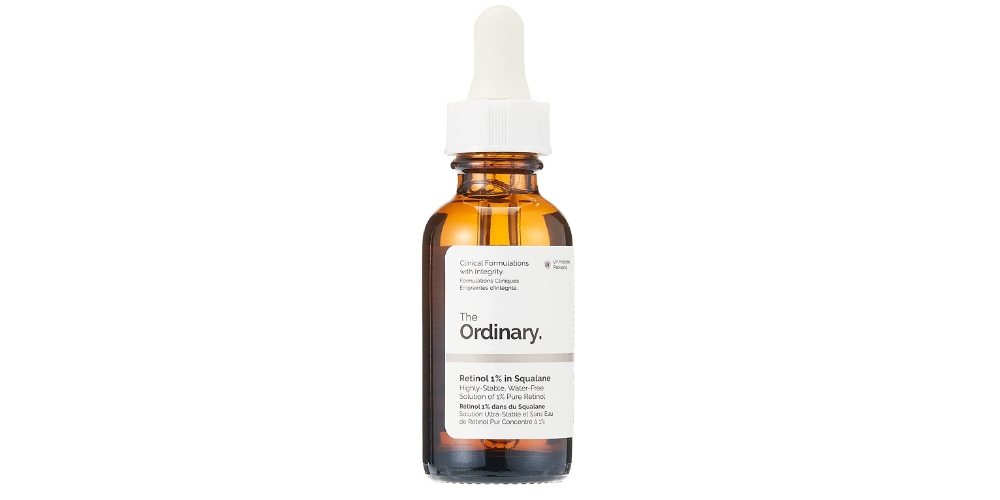
The Ordinary Retinol 1% in Squalane is an excellent choice for anyone looking to include retinoid into their skincare routine. It's gentle and free of irritants and fragrances, making it suitable for use by those with sensitive skin.
In addition, this formula also harnesses the effects of squalane to help nourish and hydrate the skin while delivering fast-acting results. We recommend using this product at night after cleansing and toning, as part of your nightly skincare routine.
Drunk Elephant A-Passioni Retinol Cream
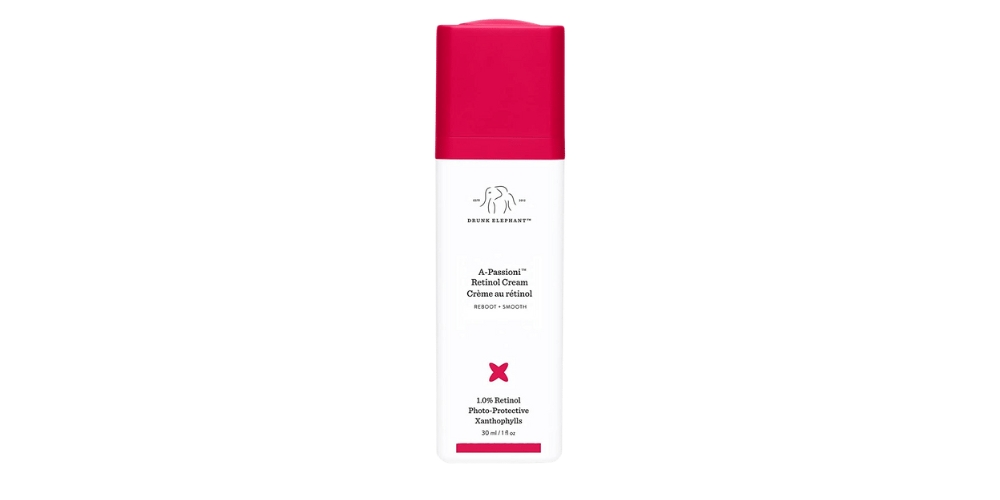
Drunk Elephant's A-Passioni Retinol Cream is a luxurious anti-aging skincare product that packs a powerful punch. It's formulated with 1% vegan retinol, peptides, and plant-based ingredients to help reduce the appearance of wrinkles, fine lines, dark spots, and other signs of aging.
The texture is lightweight and non-comedogenic, so it absorbs quickly without feeling greasy. This over-the-counter retinol cream is ideal for those wanting to include it in their daily skincare routine as it helps keep skin looking younger for longer when used consistently in combination with using good sunscreen every day.
Paula's Choice CLINICAL 1% Retinol Treatment
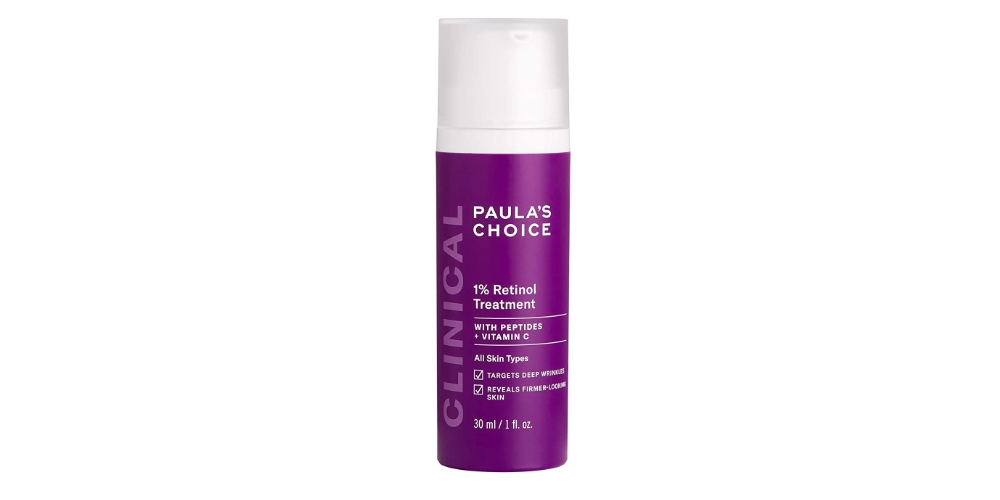
Paula's Choice CLINICAL 1% Retinol Treatment is a potent yet effective product designed to help reduce the appearance of wrinkles, fine lines, and other signs of aging. Developed specifically for those who want to reduce the look of existing damage while preventing further damage, this retinol treatment is formulated to work on all skin types, including dry skin, oily skin, and combination skin.
The lightweight formula absorbs quickly into the skin without leaving a greasy residue. With consistent use over time, this treatment can give you smoother, softer, and more radiant-looking skin as it helps reduce wrinkles, brighten dark spots, and even out discoloration.
The Ordinary Granactive Retinoid 2% in Squalane
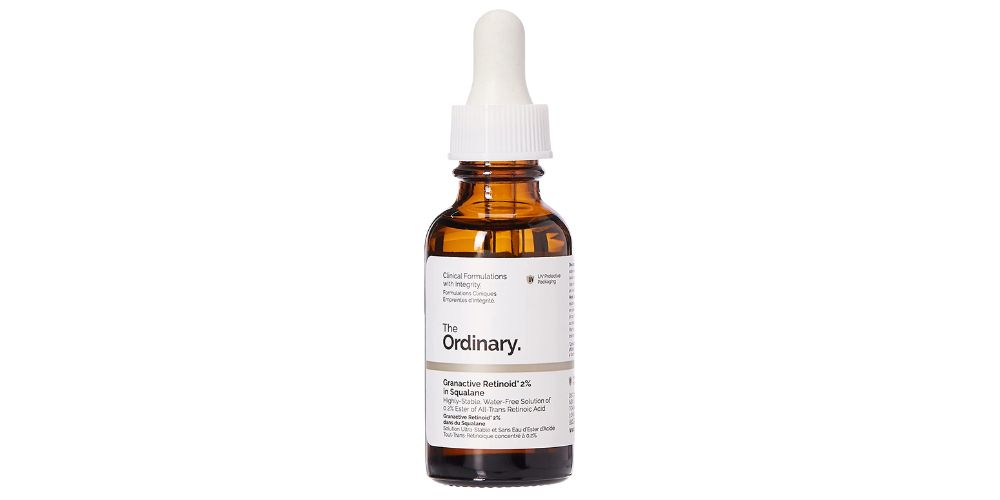
The Ordinary Granactive Retinoid 2% in Squalane is an advanced anti-aging serum with a powerful blend of retinoid technology. This potent product uses proven ingredients to help reduce the appearance of wrinkles, fine lines, and other signs of aging while helping to prevent further damage.
It is formulated with Squalane for maximum hydration and is suitable for all skin types, even those with dry or sensitive skin. Regular use of this serum can help reveal clearer, brighter, younger-looking skin in just a few weeks.
NAELI Retinoid Night Cream for Face
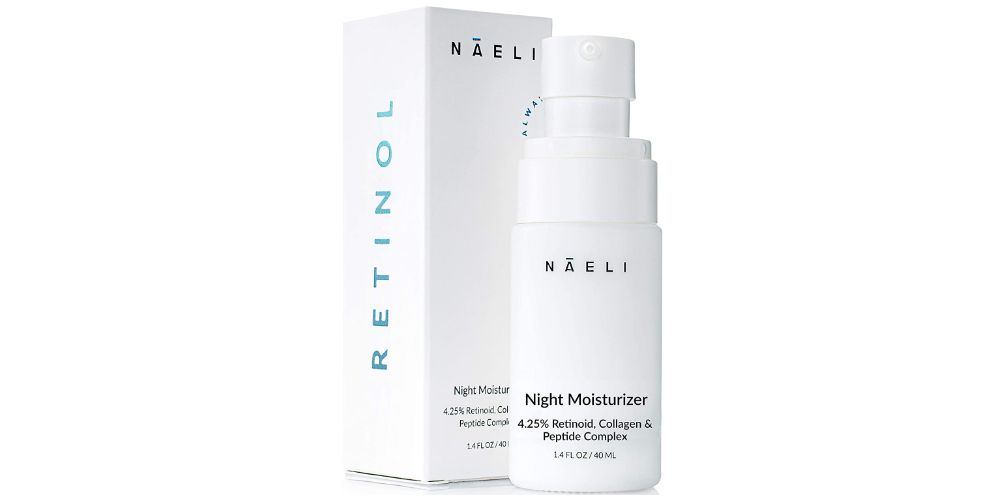
NAELI Retinoid Night Cream for Face - 4.25% Retinol Moisturizer with Collagen, Peptides & Hyaluronic Acid is a luxurious anti-aging product that contains powerful yet gentle 4.25% retinol to reduce the appearance of wrinkles, and fine lines and dark spots.
This night cream offers a gentler approach to retinoid technology than prescription retinoids, making it suitable even for those with dry or sensitive skin. It also comes with nourishing collagen and peptides that help to firm and tighten skin, plus hyaluronic acid to provide deep hydration. With regular use of this night cream, you can enjoy smoother, brighter-looking skin after just a few weeks.
La Roche-Posay Effaclar Adapalene Gel 0.1% Acne Treatment
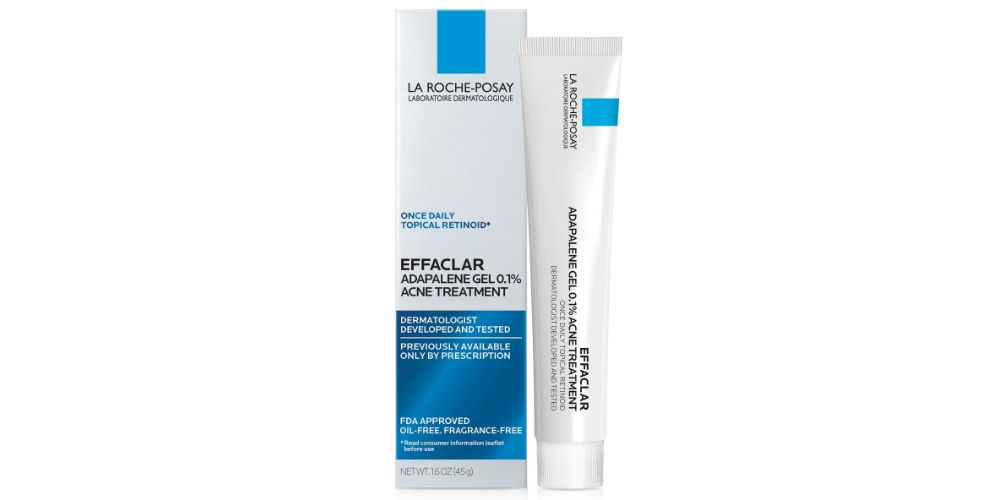
La Roche-Posay Effaclar Adapalene Gel 0.1% Acne Treatment is a powerful retinoid product that can help reduce breakouts, inflammation, and redness. The gel contains 0.1% adapalene, an active retinoid ingredient that helps to unclog pores and stop excess oil production.
It also works to balance the skin's natural microbiome, keeping it clear and healthy without over-drying or irritation. With regular use of this acne treatment, you can enjoy clearer skin in as little as two weeks with minimal side effects.
Retinol and Retinoid FAQ
Skincare can be confusing, but the answers are within reach with Retinol and Retinoid FAQs. Retinoids are a group of compounds derived from Vitamin A, which has several beneficial effects on skin health and the prevention of aging. Retinol is one specific form of retinoid, and both can work wonders for your skin when used correctly. Here we answer some of the most commonly asked questions about these powerful ingredients.
Is retinol the same as retinoid?
Yes, retinol is the same as a retinoid. Both terms refer to a type of Vitamin A that is often used in skincare products. Retinoids are derivatives of Vitamin A and have properties that can help stimulate collagen production and improve skin renewal, resulting in smoother, younger-looking skin.
Retinol is the specific name for a form of vitamin A found in over-the-counter skincare products and cosmetics. It's considered an active ingredient because it's able to penetrate into deeper layers of your skin compared to many other active ingredients on the market today. When applied topically, it stimulates cell turnover which helps reduce lines and wrinkles while also improving tone and texture.
Retinoid on the other hand is typically a prescription use ingredient such as tretinoin or adapalene which works similarly to OTC Retinol but requires some more advanced formulation techniques since it's much stronger than regular retinol you find on store shelves. Prescription-strength Retinoic acids offer even more dramatic benefits than what you get with OTC versions (such as treating acne), but they tend to come with increased sensitivity due to their higher potency levels so they must be used carefully when applying them directly onto your face or neck area.
Should beginners use retinol or retinoid?
For beginners, it is recommended that you start with a retinol product first to see how your skin reacts. Since retinoic acid is the strongest form of Vitamin A available, it can cause irritation for those who have never used this type of product before. However, if you find that your skin tolerates a low percentage retinoid cream or serum after trying out a lower concentration such as 0.025% or 0.05%, then you can move up the percentages gradually until your skin reaches the desired level of efficacy without causing undue redness or other side effects.
It’s also essential to be aware that some higher-strength products may require special dispensation from doctors – something which must be taken into consideration when deciding whether or not to use them on beginner skin types. The key thing here is understanding exactly what approach works best for each individual’s own needs and lifestyle - so don't be afraid to discuss options with professionals before making any decisions!
Is retinol safer than retinoid?
Retinol is considered to be a gentler alternative to retinoid when it comes to skincare. The primary difference between the two is that retinoid is a direct form of vitamin A and can lead to skin irritation, while retinol needs to be converted by the body in order for it to become active. This conversion process makes retinol less potent but also less likely to cause skin irritation over time. Therefore, if you are looking for an effective product without the concern of side effects, then retinol may be a better option than retinoid.
Who should not use retinoid or retinol?
People with sensitive skin, pregnant or breastfeeding women, and people under the age of 18 should avoid using retinoids. Retinoids can cause excessive dryness and irritation of the skin and can have an adverse effect on certain medications, so it is important to get professional advice before use.
People with rosacea, eczema and psoriasis should also be extra cautious when using retinoids as it may lead to further irritation or redness in those who are already prone to such conditions.
Why you should stop using retinol?
Many people who are new to anti-aging skincare may be drawn to the idea of using retinol, but it is important to be aware that prolonged use can actually cause more damage than good. Over time, retinol can lead to dryness, redness, and irritation of the skin, as well as increased sensitivity and sunburns. Even in low concentrations, long-term exposure can lead to increased signs of aging such as wrinkles, uneven skin tone, and hyperpigmentation. If you have been using retinol for a substantial period of time without seeing many positive results, then it may be best to stop using it altogether or switch to an alternative product.
Final Thoughts
Retinoid and retinol are powerful skincare ingredients, but it is important to understand the differences between them in order to make an informed decision about which one you should use.
Retinoic acid offers more dramatic results than its OTC counterpart, but can also be irritating when used on sensitive skin types or those who have never used this type of product before.
For beginners, starting with a lower concentration of retinol is recommended as it will give your skin time to adjust without risking any adverse effects.
Lastly, while using either ingredient long-term can lead to positive benefits for some people's skin, others may find that their condition worsens over time due to dryness or irritation; so if you're looking for anti-aging solutions always consult with professionals first!




